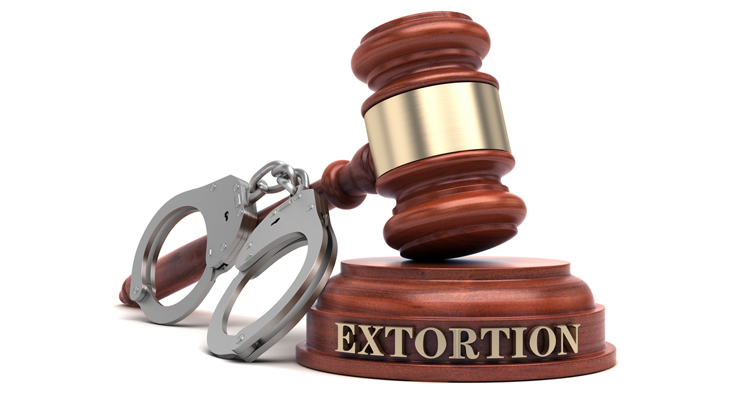
Extortion is a serious criminal offence that carries severe consequences in Canada. If you are facing extortion charges, it is essential to understand the legal system and your rights. Given the several legal factors to consider and comprehend and the severity of the charge itself, extortion cases can prove to be a highly complex legal issue to navigate. Thus, the guidance of an experienced criminal defence lawyer in Edmonton is undoubtedly crucial.
Also Read: The Importance Of A Strong Defence: How A Criminal Defence Lawyer Can Help You
Normally, extortion charges can arise from various situations, ranging from workplace disputes to organized crime. Essentially, the term ‘extortion’ refers to the use of coercion or threats to obtain money, property, or services from someone else. The elements of extortion charges include the use of threats, the intent to obtain something of value, and the harm or fear of harm caused to the victim.
A conviction for extortion can lead to severe legal consequences, including imprisonment, significant fines, and a criminal record that can impact your future employment prospects, travel, and personal relationships. Therefore, understanding the potential penalties for conviction and the legal defences available to defendants is of absolute and utmost importance.
Our team of experienced criminal defence lawyers in Edmonton has helped numerous clients facing extortion charges and can help you too. We understand that facing a criminal charge can be a stressful and overwhelming experience, and are committed to supporting you throughout the legal process.
In this comprehensive guide, we will provide you with a detailed overview of extortion charges in Canada, including what constitutes extortion, the potential penalties for conviction, and the legal defences available to defendants.
What Is Extortion?
Understanding what extortion is and how it’s defined under Canadian law is crucial if you’re facing charges related to this serious criminal offence. Extortion is a crime that involves using threats, roughness, or oppression to obtain something of value from another person. This could include money, possessions, services, or even sexual acts.
In legal terms, extortion is considered a form of theft and is punishable by a range of severe penalties.
It’s important to note that not all situations that involve a demand for something can be considered extortion under the law. For an act to be considered extortion, it must involve the use of force, threats, or coercion to obtain something that the accused is not legally entitled to.
This can include situations where the accused threatens to cause harm to the victim or their property or where they use their position of power or authority to demand something from the victim.
As per Section 346 (1) of the Criminal Code of Canada:
“Everyone commits extortion who, without reasonable justification or excuse and with intent to obtain anything, by threats, accusations, menaces or violence induces or attempts to induce any person, whether or not he is the person threatened, accused or menaced or to whom violence is shown, to do anything or cause anything to be done.
Penalties For Conviction Of Extortion Charges
Conviction of extortion charges can result in severe penalties under Canadian law. The specific penalties depend on the circumstances of the offence, such as the nature and severity of the threats or violence used, the amount or value of the property or services obtained, and whether the accused has a prior criminal record.
If you’re convicted of extortion charges in Canada, you may face penalties, including:
- Up to life imprisonment
- Fines
- Restitution payments to the victim
- A criminal record that can impact your future employment and travel opportunities
In cases where the extortion involved a firearm, the sentence may be even more severe. Furthermore, if you have a prior criminal record, you may also face enhanced penalties.
It’s also important to note that extortion is considered a “serious personal injury offence” under the Criminal Code of Canada. This means that a conviction for extortion can have long-lasting consequences and impact your ability to obtain certain licenses or permits in the future.
If you’re facing extortion charges, it’s crucial to speak with an experienced criminal defence lawyer who can help you understand the potential penalties you may face and develop a strong legal defence to protect your rights.
Defences Against Extortion Charges And A Criminal Defence Lawyer’s Crucial Role
When facing extortion charges, it’s crucial to have a strong defence strategy. Working with a criminal defence lawyer is essential to identify and pursue various legal defences, such as:
- Lack of Intent: If there is evidence to show that you didn’t have the intention to extort the victim, your lawyer may argue lack of intent as a valid defence against the charges.
- Lack of Evidence: If the Crown doesn’t have enough evidence to prove that you committed extortion beyond a reasonable doubt, your criminal lawyer may argue that you should be acquitted.
- Duress: If you were forced to commit extortion under threat of violence or harm, your lawyer might argue that you were acting under duress.
- Mistaken Identity: If the Crown has charged the wrong person with extortion, your lawyer may argue that you have a valid defence based on mistaken identity.
Having a skilled criminal defence lawyer by your side can make all the difference in the outcome of your case. A knowledgeable lawyer will thoroughly examine the evidence against you and craft a strong defence strategy to protect your rights and interests.
About Slaferek Law
Our team of criminal defence lawyers is dedicated to providing personalized and effective legal representation to clients facing extortion charges. We understand the complexity of these charges and the impact they can have on your life, and we’re committed to fighting for your rights and your freedom. Learn more about Slaferek Law.
Contact us now to get high-end defence services.
